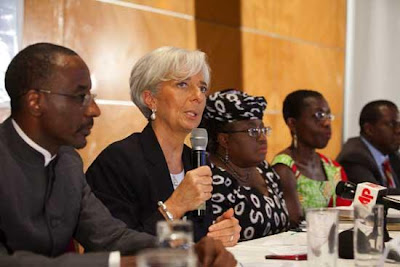Nigeria - Local Banks May Shelve Africa Plans On Capital Rules
New capital rules may hinder Nigerian banks' expansion plans, as the central bank limits how financial institutions use local funds ...
http://www.africaeagle.com/2012/07/nigeria-local-banks-may-shelve-africa.html
New capital rules may hinder Nigerian banks' expansion plans, as the central bank limits how financial institutions use local funds abroad and other African countries tighten requirements for foreign lenders.
Zambia became the latest African country to hike capital requirements for foreign banks to $100 million from $2 million this year, after Ghana and Kenya, as it tries to insulate its banking sector from the effects of a weak global economy.
With the capital hikes, Nigeria followed with a directive restricting its lenders from recapitalising offshore units from funds sourced at home, in order to avoid capital flight and save a weak naira which has lost 3 percent since April.
Nigeria's UBA on Friday said it will turn its Zambian unit into a local bank and consider a public issue of shares to meet new capital rules in Africa's top copper producer.
"We are already evaluating a number of possible options that will see UBA Zambia become a local bank in that country," said Kayode Fadahunsi, investor relations director, adding that UBA will require participation from Zambian investors.
Analysts said the measures meant that lenders in Africa's second-biggest economy may have to forgo their ambitions of establishing Nigeria as a pan-African banking hub on the continent, or look for capital elsewhere but not at home.
EXPANSION DREAM
"If all else fails, then UBA or whoever it is, will have to give up the African expansion dream in that specific country," said Bunmi Asaolu, head of research at FBN Capital, adding that UBA had operations in 18 African nations, including Zambia.
The move could affect almost all 21 lenders in Nigeria but those with the highest number of offshore units - UBA and Access Bank with a presence in nine African countries - will feel the pressure most, analysts say.
Adesoji Solanke, banking analyst at Renaissance Capital, said the new rules could also affect First Bank and Guaranty Trust Bank, given their ambition to expand offshore.
"It poses a clear risk to future external growth prospects for Nigerian banks offshore," Rencap's Solanke said, adding that Access Bank was working on selling some of its offshore units.
UBA's Fadahunsi said the bank already had the required $20 million necessary to become a local bank and that it had submitted a proposal to Zambia's central bank on how it intended to recapitalise the unit before a December deadline.
It may have to sell up to 50 percent of its shares in UBA Zambia to become a local bank, analysts say.
Nigeria's central bank has said it wants to enforce better supervision of banks and their subsidiaries in order to avoid a repeat of the events that led to a $4 billion bailout of nine undercapitalised lenders in 2009.
It has scrapped the universal banking model and asked local lenders to sell off speculative capital market businesses and focus on core lending or form a holding company, if they wish to carry on with asset management, including owning offshore units.














